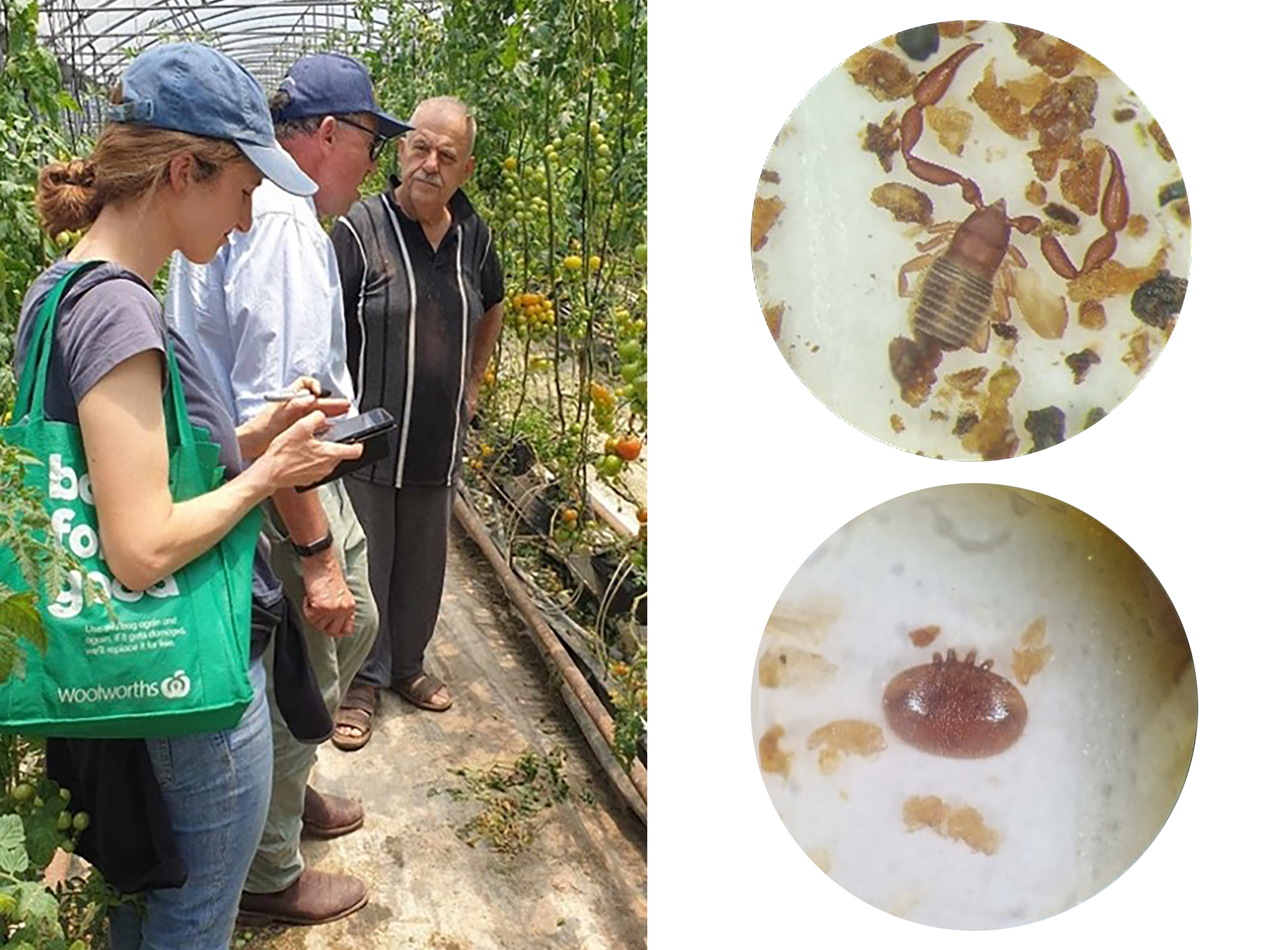

DPI NSW Biosecurity Internships an “invaluable learning opportunity”
April 20, 2023

In August 2021, the Crawford Fund’s NSW Committee partnered with the NSW Department of Primary Industries (DPI) to call for university student applicants to participate in a six-week plant biosecurity summer internship in plant health, biosecurity, and diagnostics.
In January 2022, the successful candidates were announced, however COVID-19 delayed the opportunity until recently, when the five successful applicants joined biosecurity experts and renowned researchers on real world biosecurity activities and research projects at the Elizabeth Macarthur Agricultural Institute (EMAI) in Sydney and at the Orange Agricultural Institute (OAI). The experience aimed to:
- Develop and improve laboratory and research skills, communication, project and time management, and critical analysis.
- Build professional networks with NSW Department of Primary Industries, including Plant Biosecurity Research and Development and Product Integrity.
- Discover career path opportunities in government research and scientific services.
“This is a fantastic opportunity for undergraduate students from NSW universities to get experience and training in surveillance, diagnostics, research, and emergency response operations as well as an understanding of policy, market access and stakeholder engagement,” said Dr Helen Scott-Orr, the Fund’s NSW Coordinator and former inaugural Commonwealth of Australia Inspector General of Biosecurity.
The five interns provided reflections on their experience, with all concluding that the experience was incredibly interesting, relevant and valuable for their studies and career pathways.
Tyler Kristensen’s time in Orange overlapped with the incursion of the varroa mite into Australia. As a result, he got to spend time with the entomology team analysing samples from beehives from around NSW for the presence of varroa mites (luckily, he didn’t find any). He was also shown around the impressive varroa response control centre and got to meet the people responsible for the incredible work on the varroa response.
Some thoughts from the 2022 interns’ reports include:
Stacy Cavanagh, University of Sydney
“As the internship came to an end, I reflect on the skills I have learnt and feel truly grateful for the experience. I believe the internship program is important to encourage more budding plant pathologists, such as myself, into the industry.”
Charlotte Hogan, University of New South Wales
“My internship was a hugely valuable learning experience. It improved my practical skills, level of confidence, understanding of potential career opportunities, and my resume! It is undoubtedly one of the best things I’ve been able to do over my time studying.”
Tyler Kristensen, University of Sydney
“After an unfortunate year of COVID-related issues, being able to undertake the Biosecurity Summer Internship Program was an incredible experience. The program allowed me to consolidate and expand my skillset into a range of areas including microbiology, entomology and plant pathology.”
Kate Smith, University of New England
“The internship was a fantastic opportunity to consolidate much of my university studies. Now working in crop management and protection, I found the internship to be incredibly relevant to my career. I cannot recommend this opportunity enough!”
Lucy Horne, University of Sydney
“The training was particularly important since I missed out on developing hands-on, practical laboratory skills due to the restrictions imposed by COVID-19. Hence, the course has aided my laboratory skills development and deepened my plant pathology, entomology and biosecurity knowledge and pathogen identification. I have also transferred these skills to my vocational role in an AgTech company.”
The Crawford Fund and the NSW Department of Primary Industries have a strong working partnership which includes a number of on-going projects in SE Asia focused on plant and animal biosecurity, the diagnosis of plant diseases, pests and weeds, the development of appropriate control programs, and improving crop production systems.
Congratulations to Lucy, who’s intern experience, in her words “led to a deeper interest in developmental agricultural work overseas, particularly in plant pathology and biosecurity,” which has resulted in her joining the Crawford Fund team working in Lao PDR, conducting pest and disease surveys in different cropping systems, undertake a pathogenicity trial on macadamia seedlings, and monitor soil temperatures under certain treatments.
Keep an eye out for the reports from our 2023 interns soon too!




 0
0